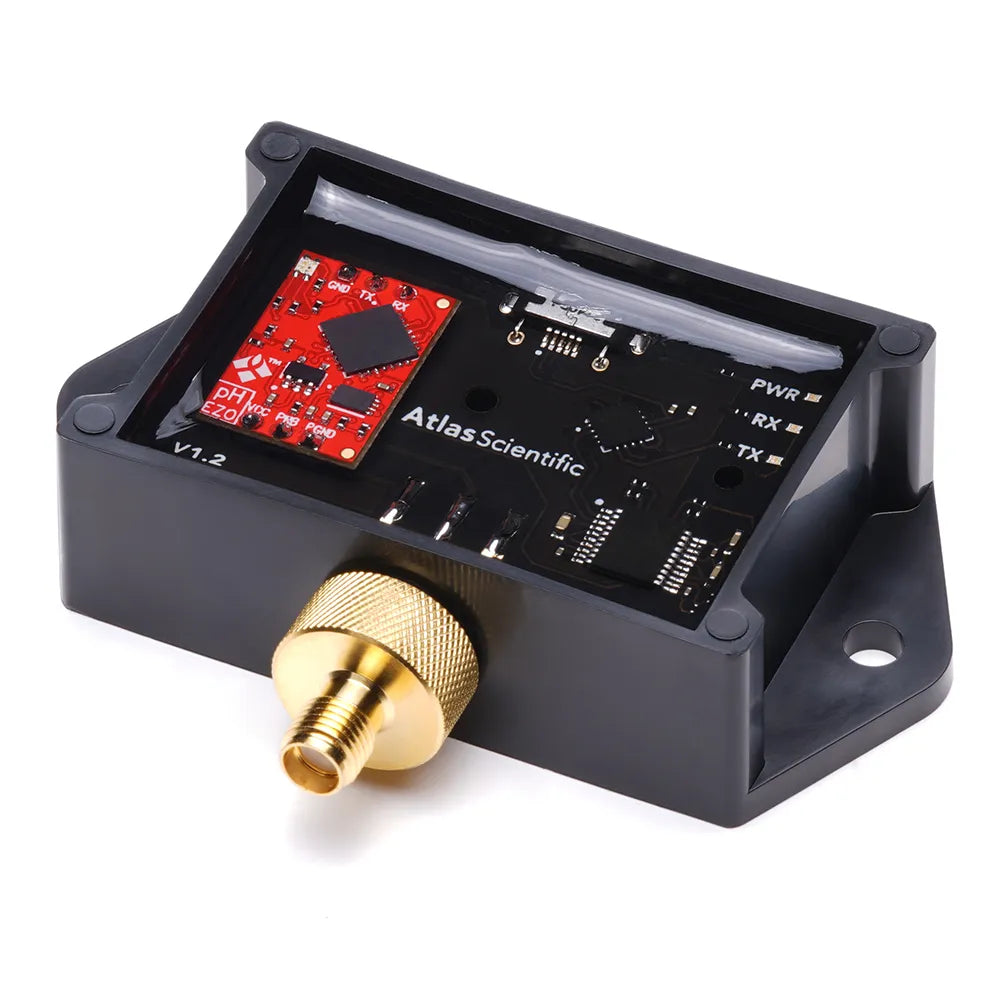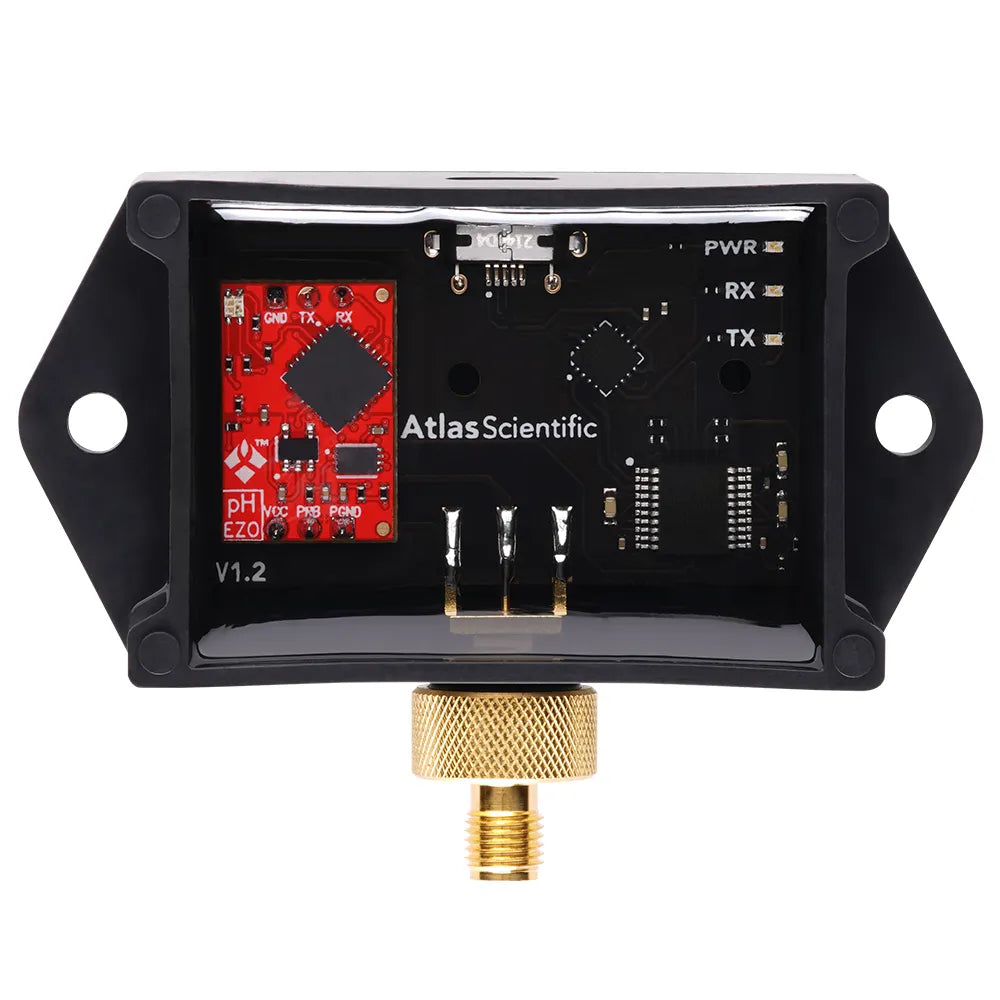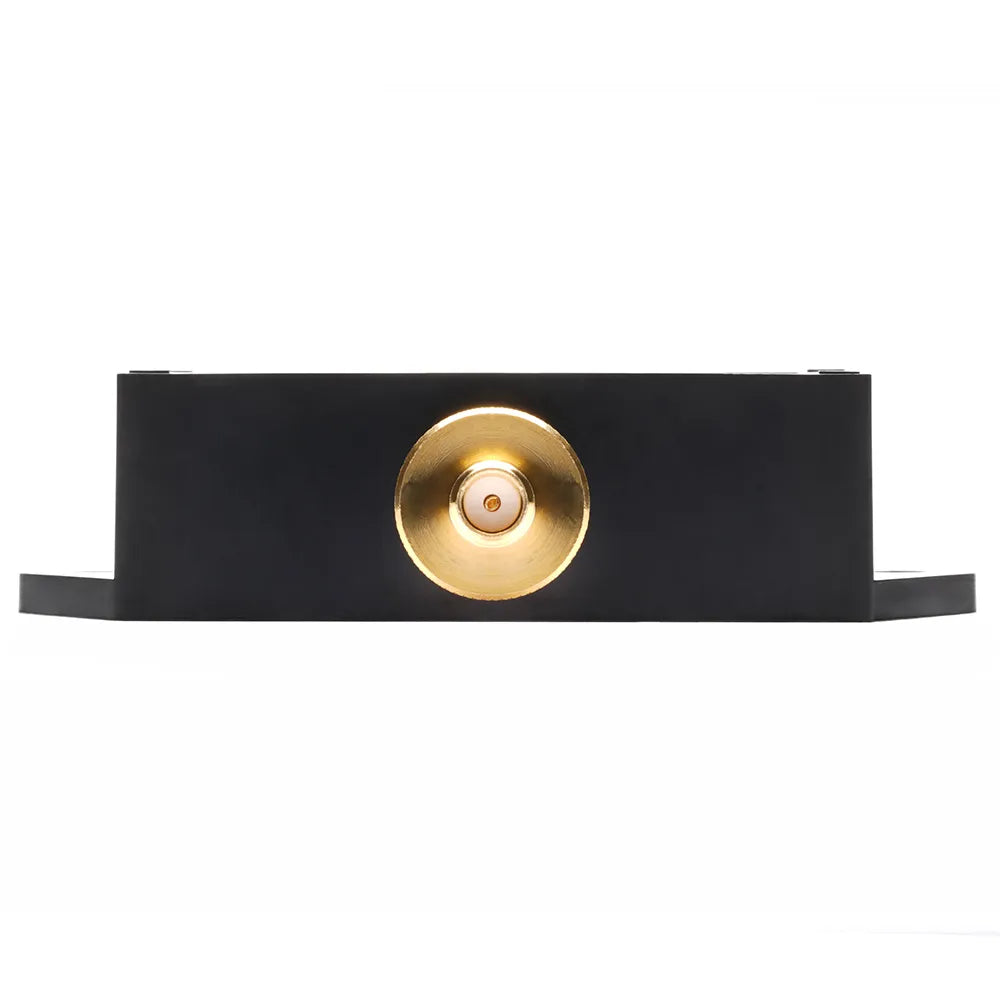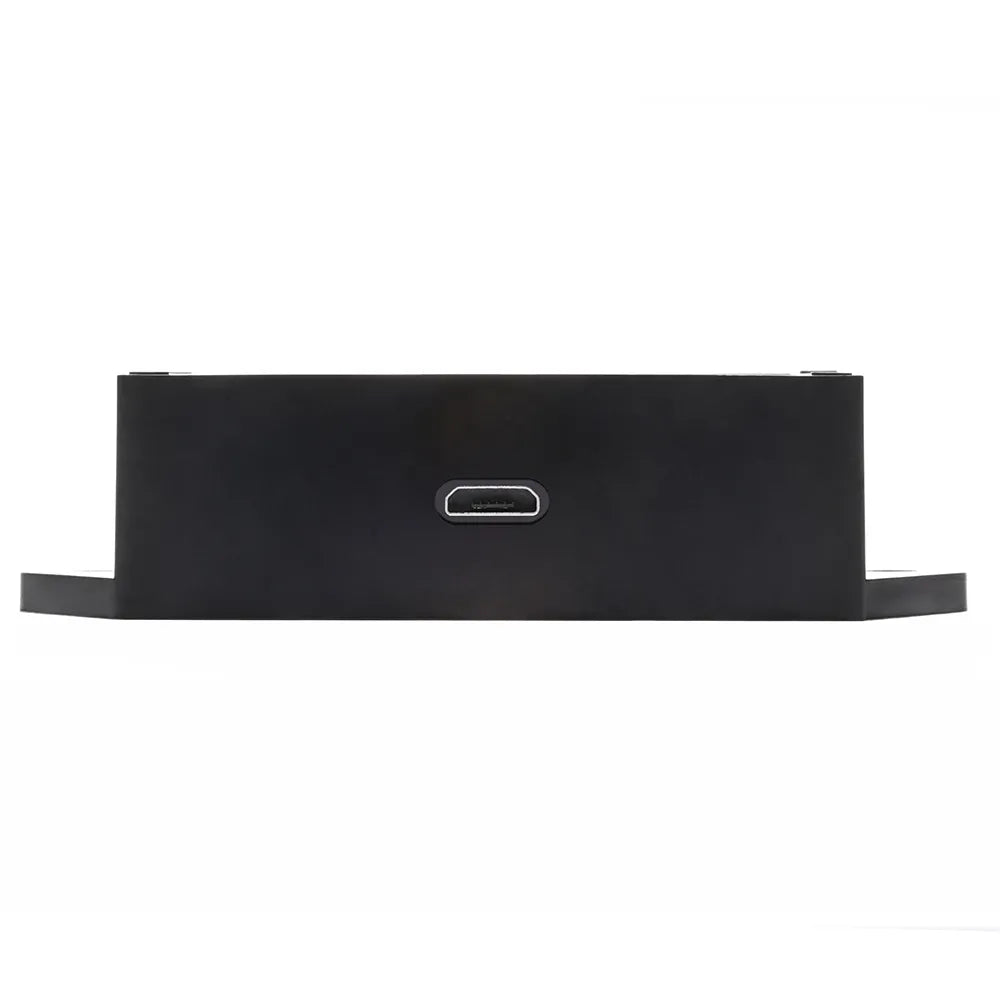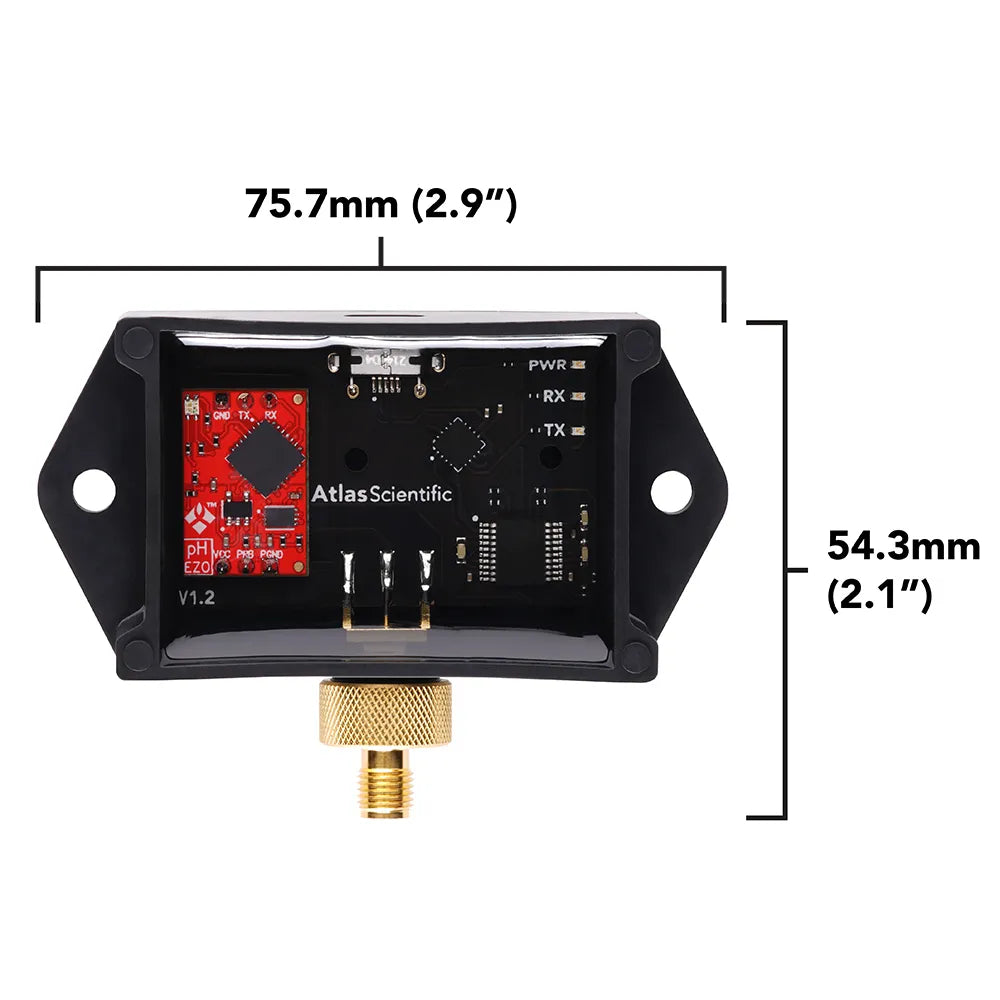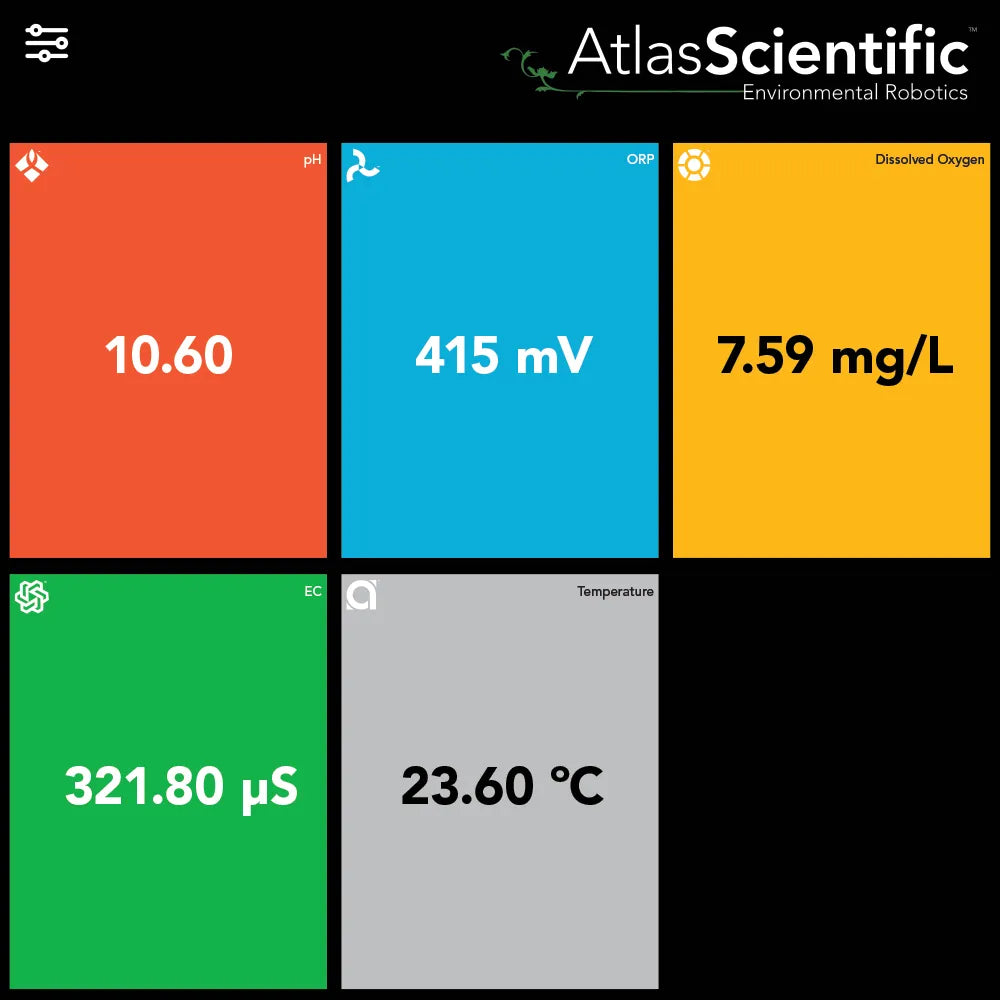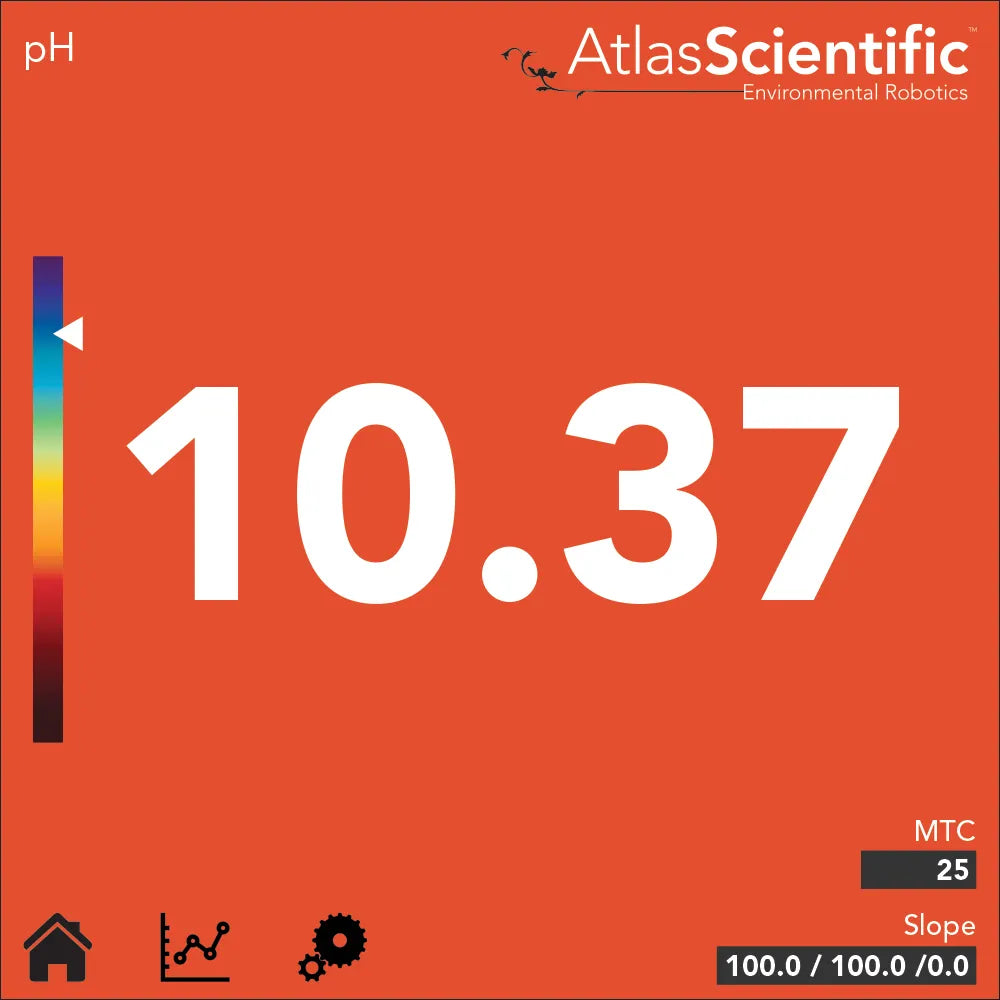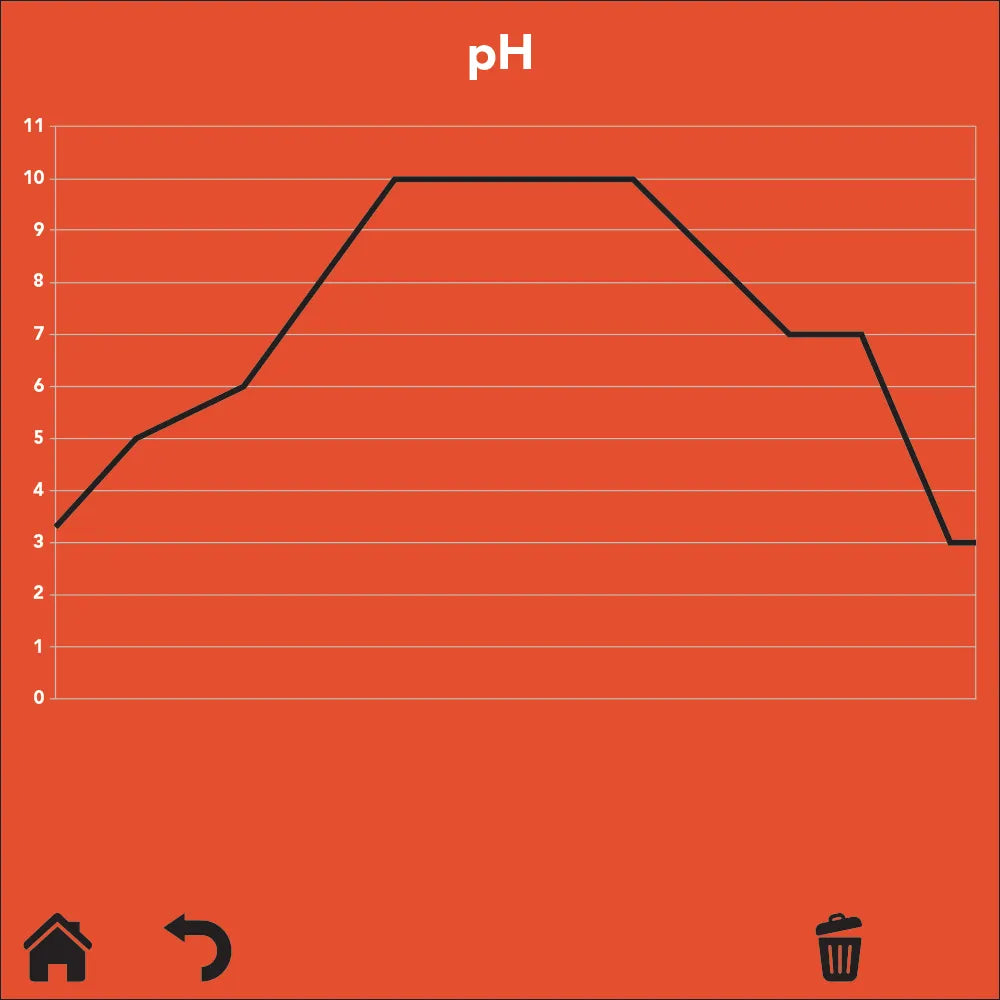Atlas Scientific
EZO Complete-pH™
EZO Complete-pH™
Description
The EZO-Complete USB pH meter makes building a custom monitoring system easy. Simply connect the EZO-Complete to a PC and install the free Atlas Desktop software. Connect multiple EZO-Complete pH modules to read pH from multiple locations.
Embedded systems engineers can use EZO-Complete pH with any USB-enabled microcontroller. EZO-Complete will create a virtual comport and is controlled using simple serial strings.
Specifications
| Reads | pH |
| Range | .001 − 14.000 |
| Resolution | .001 |
| Accuracy | +/– 0.002 |
| Response time | 1 reading per sec |
| Supported probes | Any type & brand |
| Calibration | 1, 2, 3 point |
| Temp. compensation | Yes |
| International standard | ISO 10523 compliant (determination of pH) |
| Dimensions | 75.7mm x 54.3mm (2.9″ x 2.1″) |
| Weight | ~54 grams |
| Data protocol | Serial strings through FTDI virtual comport |
| Data format | ASCII |
| Operating voltage | 5V USB |
Shipping & Returns
It may happen that you want to return an order. Because the product does not suit you, maybe there is another reason why you would not want the order. Whatever the reason, you have the right to cancel your order up to 14 days after receipt without giving a reason.
After cancellation you have 14 days to return your product. You will then be credited 85% order amount excluding shipping. For more information click the following link: /pages/shipping-and-returns
What's Included?
The EZO Complete-pH™ comes with:
1x EZO Complete-pH™
Documentation
Datasheet for Engineers
Instructions for use with Atlas Desktop
Downloads
Tools
Documents
3D file
No se pudo cargar la disponibilidad de retiro
2 en existencias
Low stock?
Low stock?
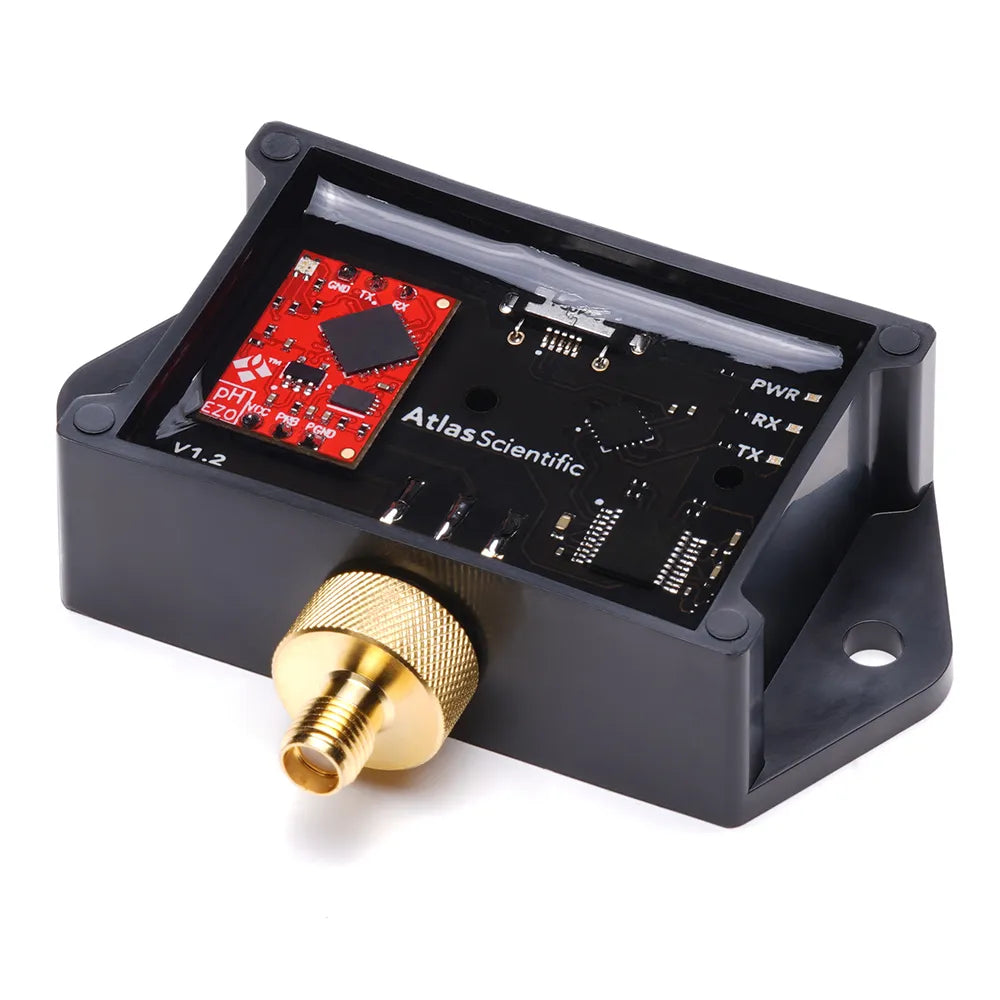
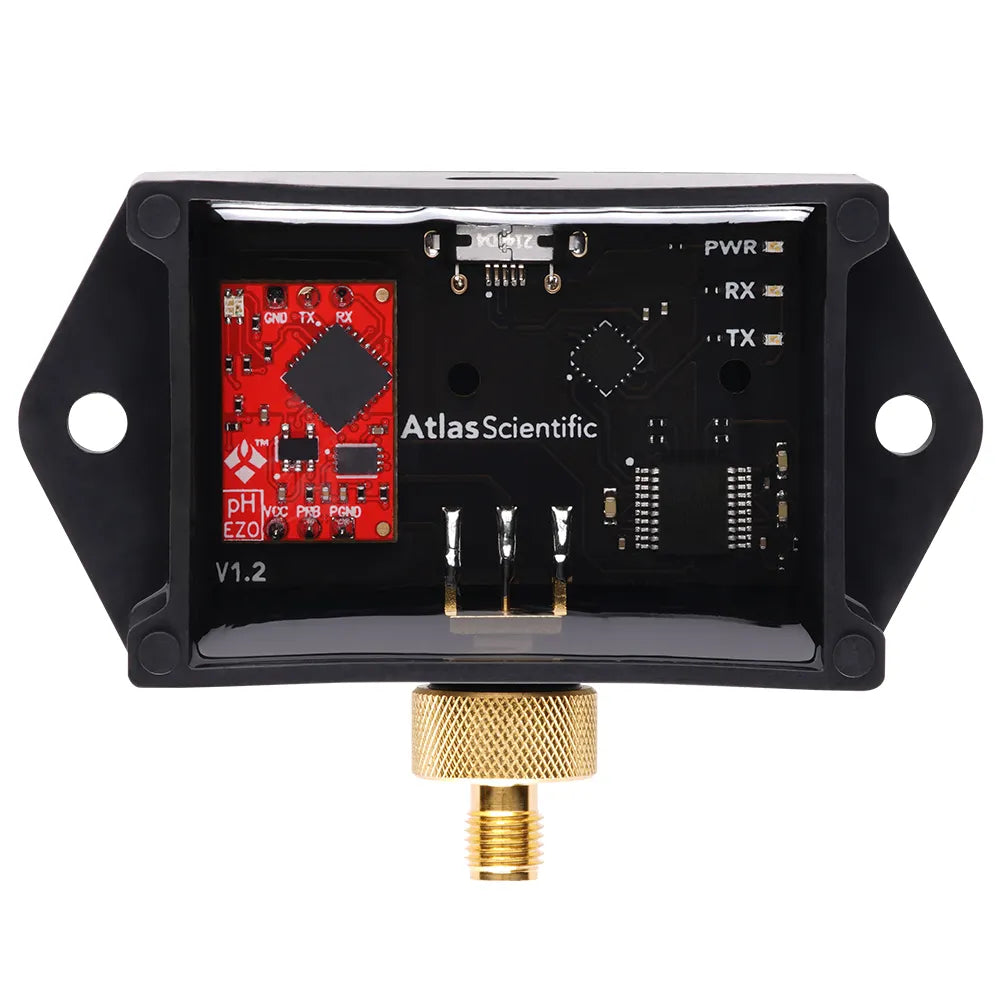
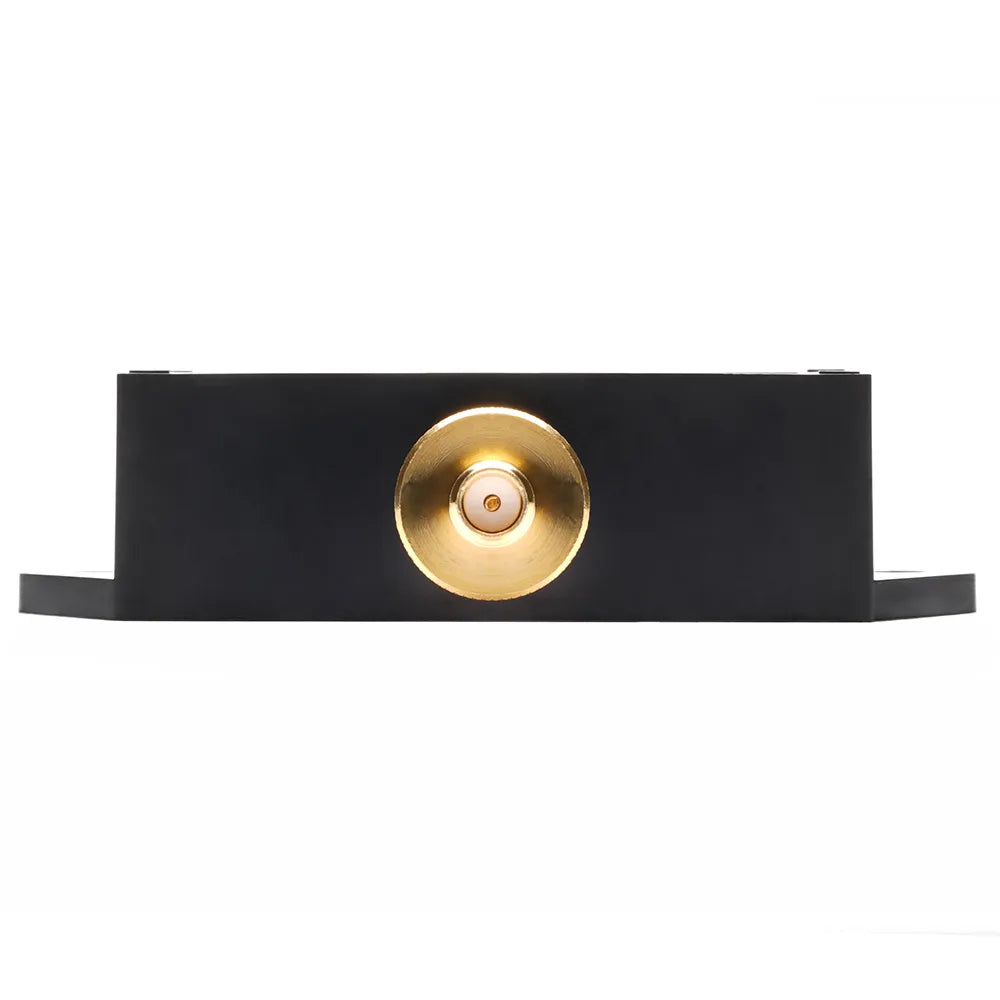
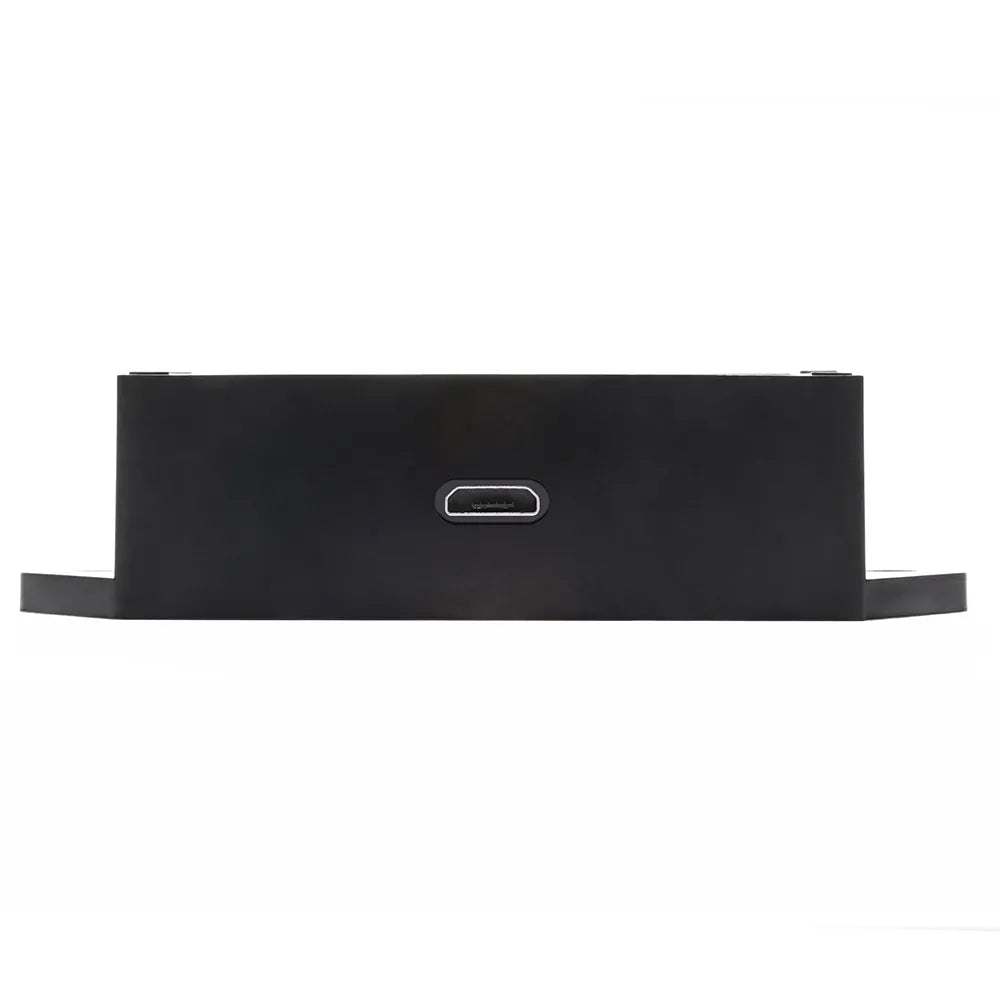
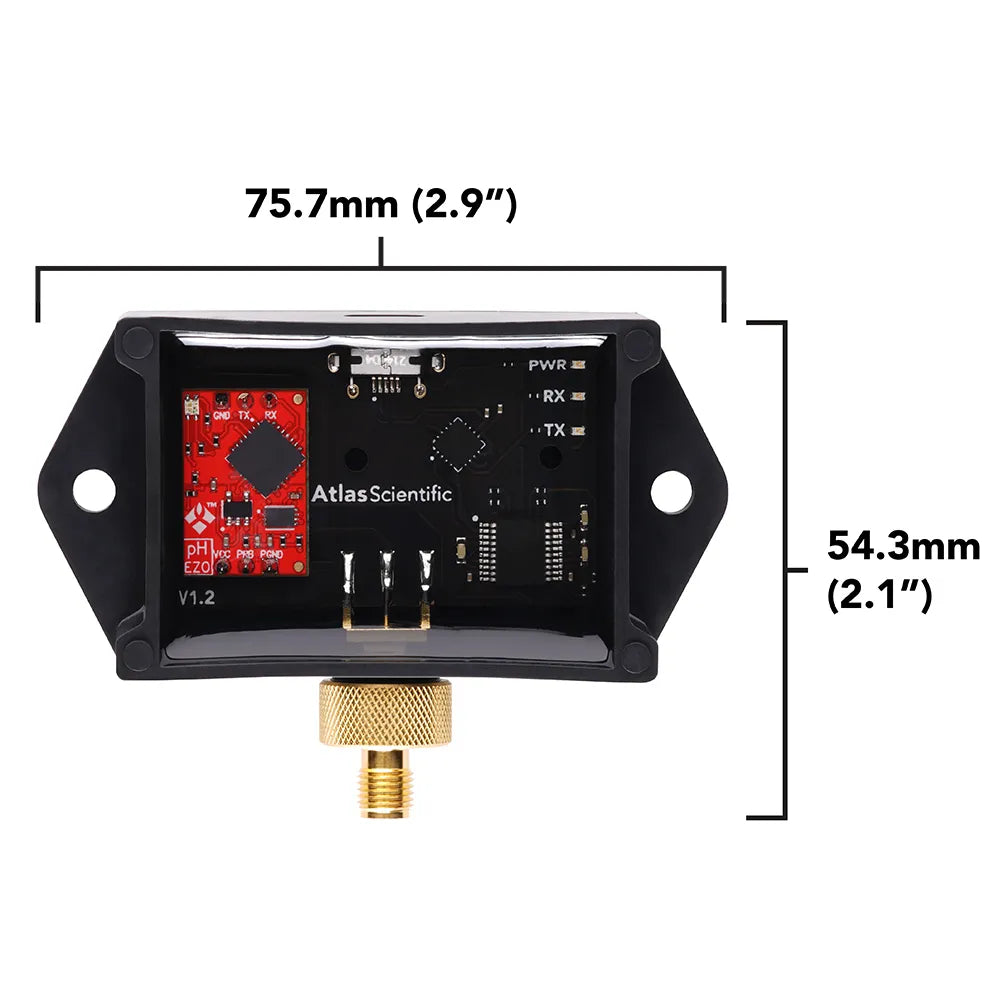

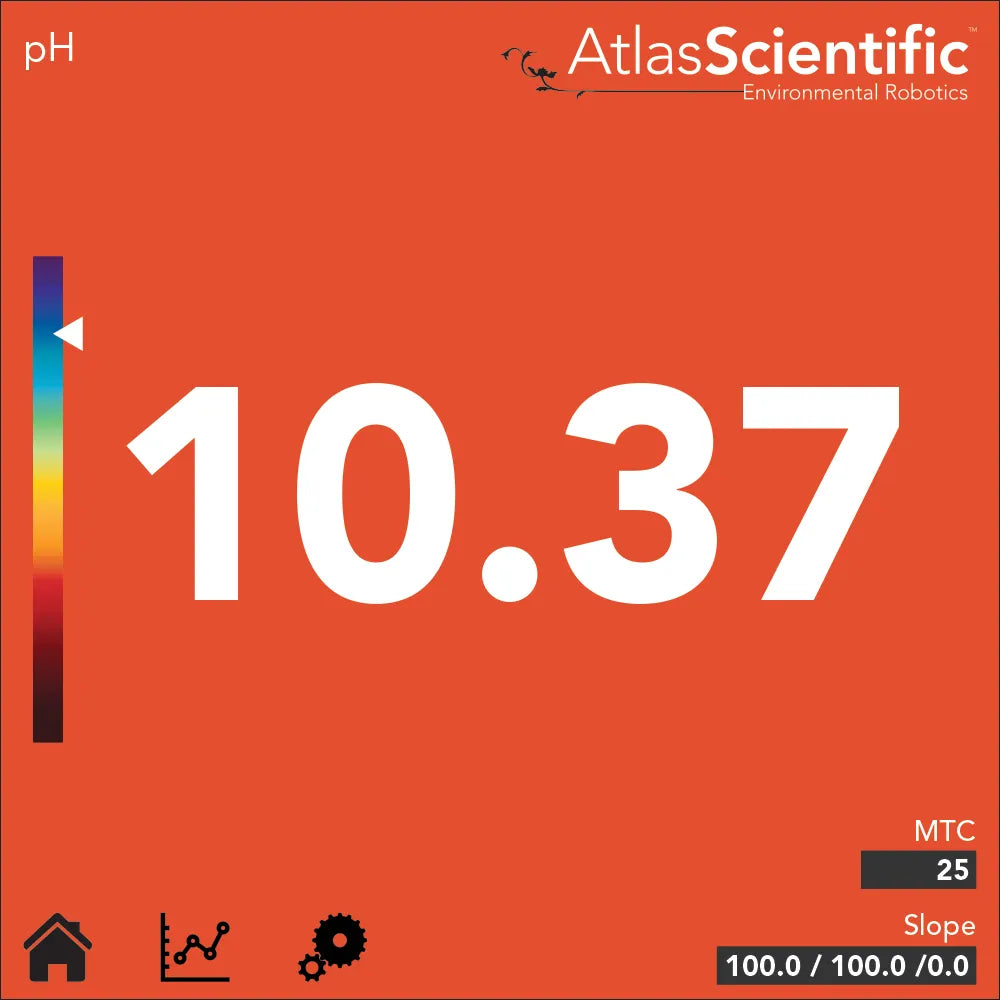
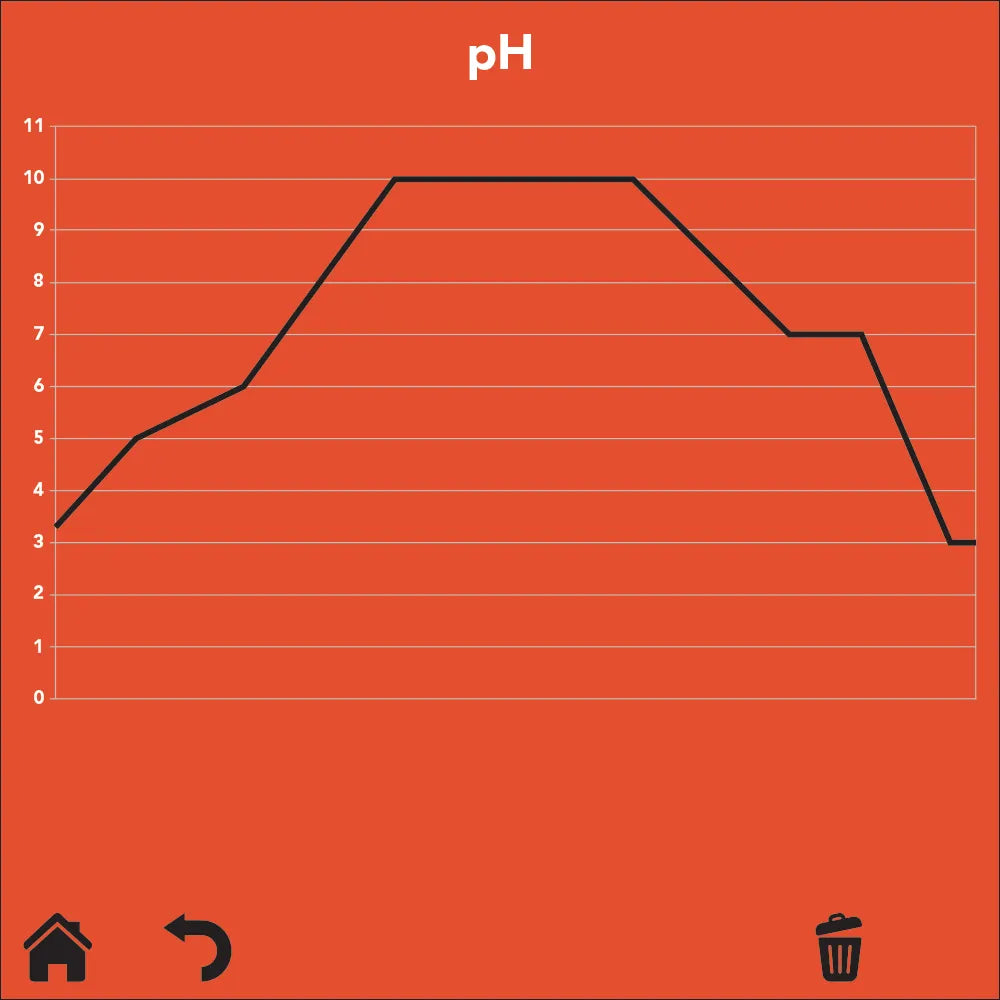
Very happy that it is well made and documented. We succeeded to interface it with an Arduino MKR thanks to an OTG driver and cable. Also, reusing the probe from another pH sensor was cool for development.

